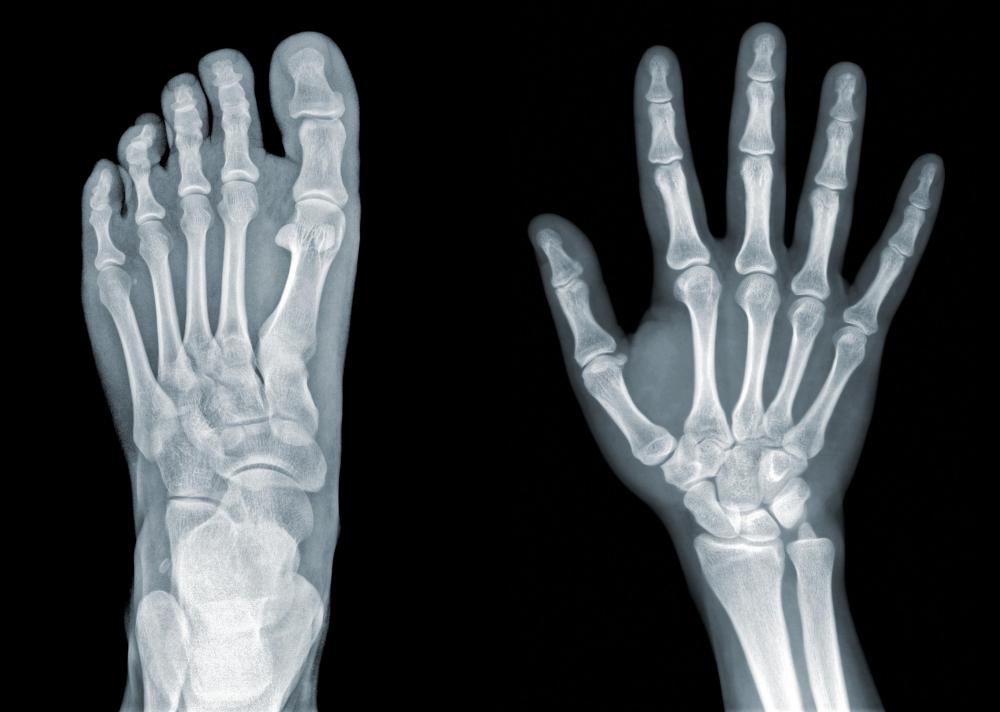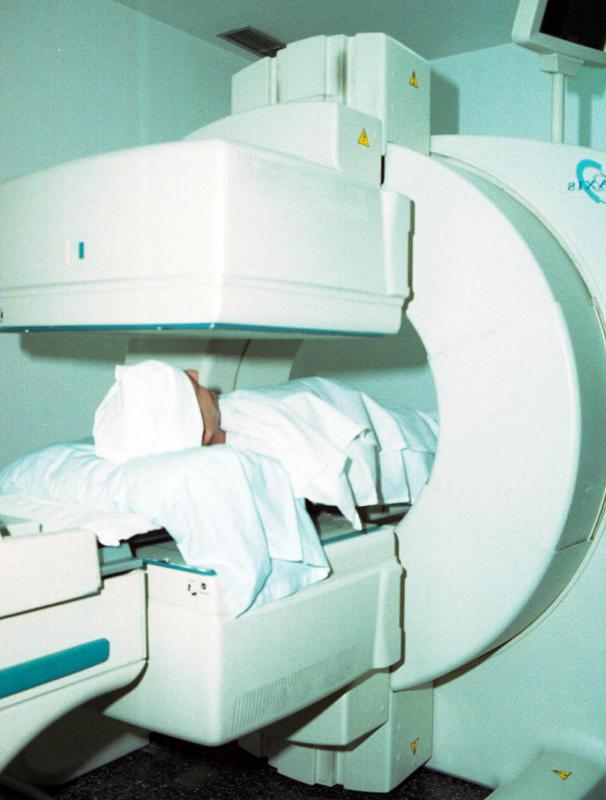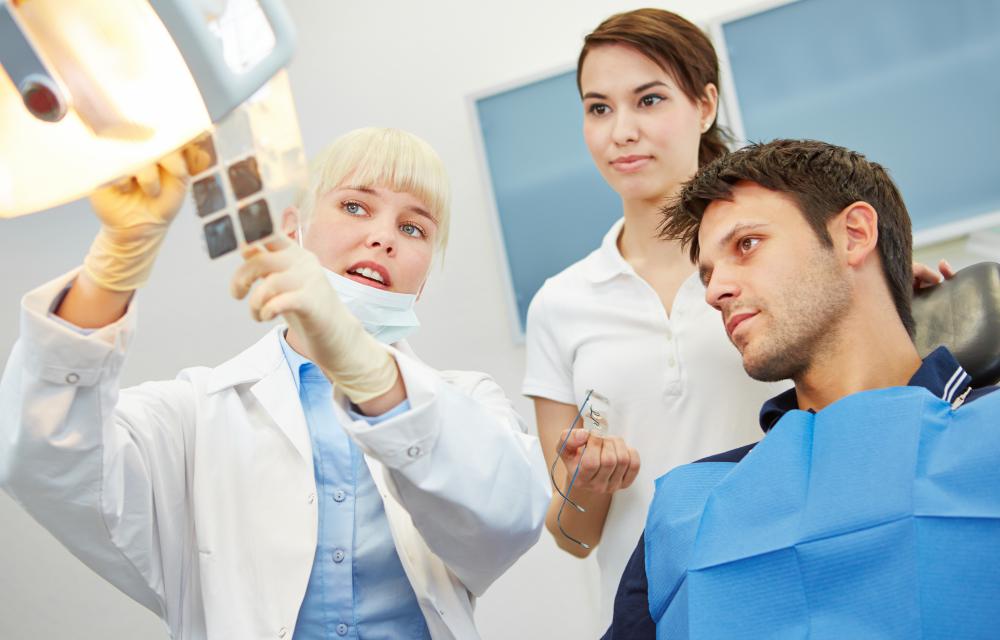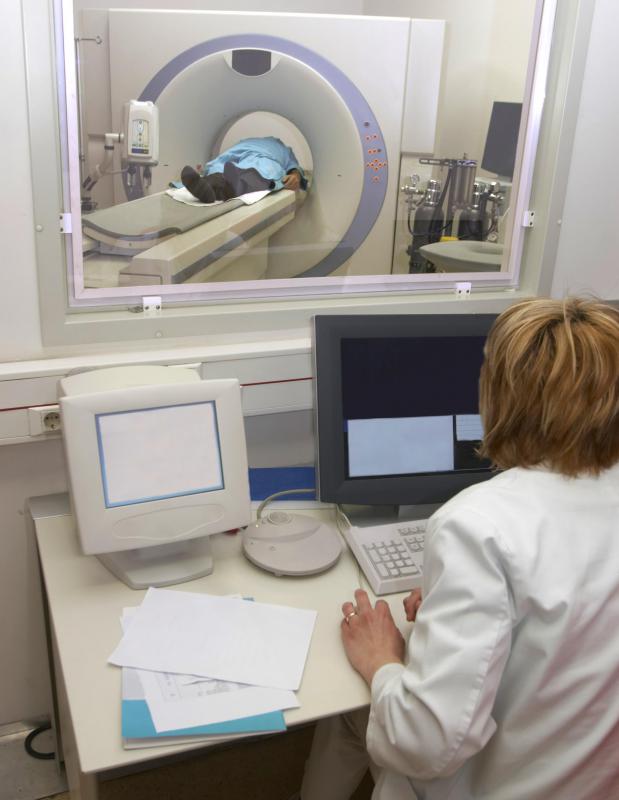At WiseGEEK, we're committed to delivering accurate, trustworthy information. Our expert-authored content is rigorously fact-checked and sourced from credible authorities. Discover how we uphold the highest standards in providing you with reliable knowledge.
What is a Radiography Technician?
Radiography technicians, also commonly known as radiologic technologists or radiographers, perform x-rays on parts of the human body to help diagnose various medical ailments. Many radiographers have additional training to work in specialized fields such as nuclear medicine technology or magnetic resonance imaging (MRI) technology. In the US, radiography certification from the American Registry of Radiologic Technologists (ARRT) is required to work as a radiography technician.
Although the primary job of the radiography technician is performing x-rays, techs often have many other duties. Technicians are expected to precisely follow physicians’ orders, while also adhering to the proper use of radiation equipment to prevent unnecessary exposure to patients, co-workers, and themselves. The radiography technician prepares a patient for examination by explaining the medical procedure and positioning the patient so that specific body parts can be radiographed. It is also the job of the radiography technician to remove articles such as jewelry from patients, through which radiation is unable to pass. In addition to performing scans and preparing patients, radiography technicians may adjust and maintain radiography equipment, organize patient records, and devise department work schedules.

Experienced radiography technicians often perform more complex and intrusive radiologic procedures. Radiographers called nuclear medicine technologists use specialized diagnostic processes that involve administration of non-radioactive substances into patients’ blood streams. Radiography technicians known as computed tomography (CT) technologists operate computerized scanners to produce cross-sectional patient images. MRI technicians operate machines that use strong radio waves and magnets, opposed to radiation, to create images of the body.

Preparation for the radiography technology profession is offered in colleges, universities, hospitals, and occasionally in technical institutions. Employers usually prefer to hire technologists with established training. Formal radiography training programs span in length from one to four years, and guide students to a certificate, associate degree, or a bachelor’s degree. One-year certificate programs are designed for experienced radiography techs, or those from other health fields who want to change medical professions. Two-year degree programs are most common in radiology training.

In the United States, voluntary certification exams are offered by the ARRT. To be eligible for certification, radiography technicians typically must graduate from an accredited radiology program and pass an examination. Radiography techs must complete 24 hours of continuing education every two years to be re-certified.
A full-time radiography technician averages approximately 40 work hours a week. Many have on-call, evening, and weekend shifts. Most radiography technicians find work in hospital settings. As physicians transfer to outpatient-care and separate diagnostic facilities, more radiological procedures may take place in other healthcare venues.
AS FEATURED ON:
AS FEATURED ON:

















Discussion Comments
Does a person have to have extra training to be an ultrasound technician? Is it something extra in addition to being a radiology technician?
I had an x-ray of my foot taken by a radiology student at the hospital. She said she was in her 5th radiography course and was practicing her skills she had learned on patients. She did a really good job and was very polite.
I asked her questions about becoming an x-ray technician because my daughter is interested in it. It seems to be a good job and is in the healthcare field, which is the place to be for jobs.
Post your comments